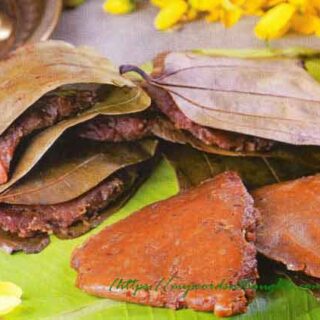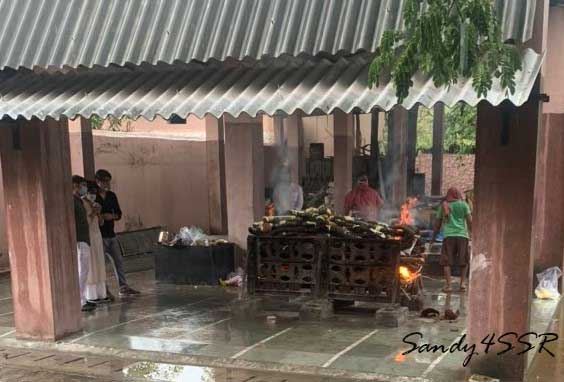Pulikali of Thrissur owns a history of more than 60 years and Puli team used to visit Kerala homes during Onam season till 25 years ago. Pothottapuli and Belt Adikkuka are some of the interesting events associated with Pulikali in the glorious yesterdays. Click here to know more about the history of Pulikali.
As usual Pulikali was organized this year also. But there were certain specialties of Pulikali 2016, and is definitely going to enter the history books for one particular reason. Do you know the reason why?

Pulis in Thrissur Streets
Pen Puli broke the dominance of males in this sport
Till now, Pulikali which has the history of more than two centuries has been a male sport till now. In 2016 history has been overwritten, when women participated in 60-year old Pulikali organized in Thrissur town. A group of three women jingled their bells in the street of Thrissur for the first time, after receiving special training. They formed a part of Viyyur Desam – one among the 10 groups this season, and this welcome move was organized by the organization – Women Integration and Growth through Sports. It’s really a welcoming move from women’s side, and spectaculars too welcomed women’s presence in Pulikali with open heart.
The three participants were ASI Vinaya of Police Academy Thrissur, Divya – school teacher of Pullamkode Malappuram and Fashion designer Zakina from Kozhikode. Vinaya turned tiger while the rest two disguised themselves as leopards. They wore specially designed dress resembling male pulis. Colours chosen too remint spectators of tigers and leopards. They draw picture of tiger faces, and also filled body parts with tiger colours. Extensive makeup was done by two ladies from Viyyur – Sheela and Sridevi. They also used spray painting that is quite common in body arts of foreign countries.
When Viyyur Desam arranged three female tigers for the event, Ayyanthole desam came forward with one Penpuli for the maiden attempt and the history is born! Rahna Fathima from Ernakulam who works in BSNL wore tiger’s costume for Ayyanthole team.
Chathunni – The veteran and the most senior member of Pulikali
Chathunni is 76 years now, and year 2016 celebrated his 60th anniversary for participating in the event. Yet his increasing age has never killed the sport of Pulikali in Chattunni’s soul. Definitely he is the senior- most member of all Pulikali teams belonging to all desams. Though he started makeup of tiger to participate in the sport since the age of 16, he has never got the opportunity to compete for his own desam – Ayyanthole. So to honour him on his 60th anniversary for participating in this recreation sport, and for Chattunni’s intense desire to participate for his desam, the team Ayyanthole decided to spend lakhs of money this time to participate in Pulikali celebrations, and finally Chathunni’s dream came true to ring jingles for his desam. He was also honoured during this event, as a part of Onam celebrations.
Chattuni Asan guided his team for Pulikali celebrations as team leader, though he is thin and slim unlike other team members. He was the singer member of his team who didn’t draw tiger’s face on his stomach.
Now a few more interesting facts on preparation of colours for Pulikali

Black Puli for Pulikali
Certain things are noticed while colour pastes are made. Pastes should be fine and it should splutter – that’s the correct preparation. Varnish is added to colour powders to prepare the main colour for tigers. Yellow is the predominant colour. Method is to grind yellow colour with varnish to make a fine paste. Tempera powder is also used.
During those early years colours arrive as blocks, and extra effort was required to powder them first before colours are added. Gorilla colours, used to colour wooden furniture are used to prepare tiger colours. In addition to yellow, red, black and white colours are made to a fine paste adding varnish.
Hair of participants’ body is removed in the evening, one day prior to Pulikali, and by next morning dawn break the art of painting on body starts. It takes hours of patience to complete one tiger body and the participant needs to carry this makeup till night. Base coat itself takes 2-3 hours to dry and enhanced designs are made during second coat. It takes 5-7 hours to complete the art of single Puli. So intense colours are also chosen and paints used so that they won’t fade easily. Yellow, black and red colours together form the priority.
When tigers conquer main streets of Thrissur on Fourth Onam
By noon by Chathayam day, tigers start appearing in various streets. Total team members vary from 35 to 51. They enter competition and on full strength once they reach Swaraj round by 4 pm in the evening, and judges will closely watch tiger figures at specific locations such as Paramekkavu, M. O. Road and Naduvilal to give marks. Fixed time is given to each group, and if the team doesn’t follow it, it will be declared out by judges.

Tigers and Leopards with predominant yellow colours
There are normally 6 or more distinct paths through which pulis reach Swaraj Round, and it may differ as per number of teams every year. This year, Pulis reached main round through Shornur Road, Palace Road, Karunakaran Nambiar Road, M. R. Menon Road, Kuruppam Road and M. G. Road. More than 500 policemen will be arranged every time for safety reasons, and fireworks display also conducted. Puli Chamaya Pradarshanam is also conducted every year, one day prior to the great event. This year flag off was done by Thrissur’s MLA and minister, V. S. Sunil Kumar aside minister A. C. Moideen.
A few highlights of Pulikali 2016

Kutti Puli – A small kid disguised as a leopard
Pen Puli – As told earlier, it was a historic moment when women tigers and leopards conquered Thrissur streets for the first time. Viyyur and Ayyanthole desams added female tigers this time, which created a lot of buzz among the spectators. It was hard to recognize female tigers from male tigers, as they used similar makeup. Viyyur team members were energetic in the show to prove they are equal to male tigers.
‘Chattunni Tiger’ celebrated his ‘70th birthday’ this time, another highlight of this season. Among the 10 pulidesams, Mailippadam reached Swaraj round first. More than 400 tigers/leopards and equal number of percussionists plus more than 30 floats participated in the event this time. The traditional style of dancing on pestles was also displayed. Read more to know.
BBC Puli Team who shoots the program – All Over The Place also participated in the event this year. They did so to shoot the event for BBC, and it was spectacular to watch foreigners in tiger’s makeup. They form a part of Ayyanthole team and anchors of the show, Ed and Ironel from Scotland were seen in tiger costumes. The anchors put real makeup of tigers and learnt a few steps from veteran Chathunni Asan before they put steps aside Ayyanthole team members. It’s for the second time the team reached India. Prior to shooting Pulikali and Kabbadi from Kerala, they have also shot some of the traditional items of Delhi and Rajasthan for the show which aims at exposing Indian culture to the world.
7-feet high Pulis of Poonkunnam – Poonkunnam Sankham presented 10 tigers with 7-feet height. It formed the centre of attraction of Poonkunnam group also. Those tigers are members of Tall Men Association, and their height varied from 6-ft to 7-ft. Poonkunnam also included a father-son duo who made their arangettam this year.
Approximate cost for each team

A float presented as a part of Pulikali celebrations
Big bellied people are of high demand as it is easy to draw good tiger faces on their bellies. Such ‘Pulivayaran’ people will be highly paid too, costing rupees 5000 or more, and each group contains multiple number of Pulivayarans. (Vayar means belly/stomach). More than 1 lakh rupee may be needed for colours only and expensive floats also add extra costs. Amount for Ulsaha Committee is extra. In short a team may need 5-8 lakh rupees. A little amount is provided by Thrissur Corporation as grand though it’s not sufficient. Rest amount is collected from local residents of each desam.
To conclude

Big Bellied Tigers
As Onam season arrives, cultural capital of Kerala gets associated some of the traditional sports like Kummatti Kali, a few other Onam sports like Pakidakali and Onathallu, and most importantly Pulikali, which gained popularity over the years similar to Thrissur Pooram. With early preparation done, including stitching of clothes and preparation of colours, for a single-day show Thrissur people put great efforts which need to be appreciated. It’s similar to the preparation of gigantic athams at Kovalam, Thiruvananthapuram for the last 2 days prior to Thiruvonam.
Several experiments are done with colours since early 3 am of 4th Onam, by increasing or decreasing the intensity of colours and those experiments which gave unique looks to tigers get attraction most. Tiger masks, paints on hands and legs, tiger faces drawn on stomach and fixed red tongues add attraction to tiger figures. Different varieties of tigers and leopards are available for the sport – big bellied, slim tiger, florescent tiger, colourful tiger, black tiger etc etc.
Read in detail, vibrant colours of Pulikali
Preparation of colours for makeup is equally important. It takes more than a day for the preparation of colours and it’s done in respective desams who arrange their own teams. Certain poojas are done and some customs followed before the regular preparations starts. It includes lighting lamp and offering coconut and flowers and often a Para. Read more to know about Para tradition of Kerala. The final touch of floats is also completed the same day. It’s similar to Keralities’ Uttradapachil, the exclusively shopping and preparations done one day before Onam.




















Recent Comments